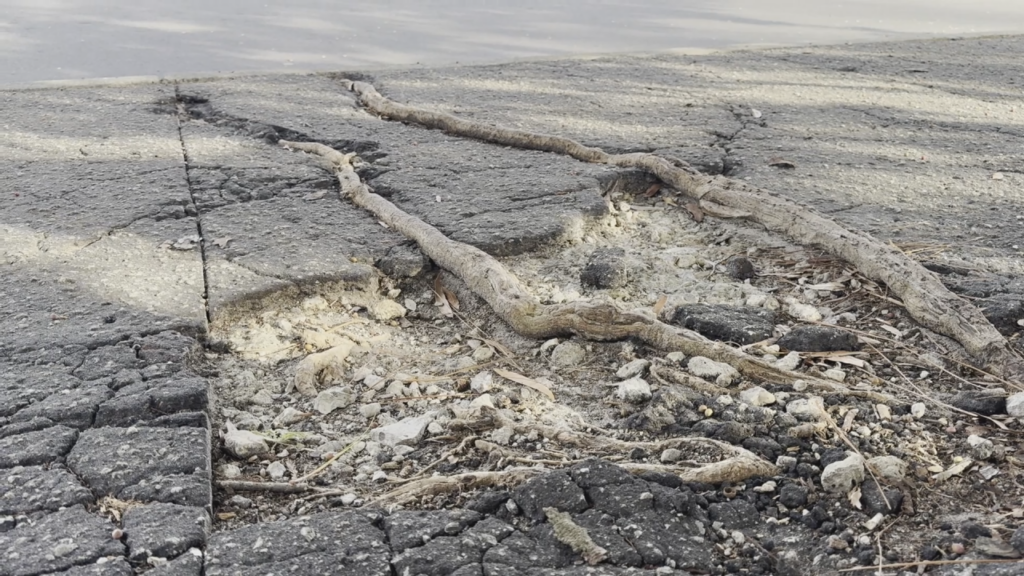Endless summer for sharks: Seasons change, visitors leave, underwater locals just keep swimming
CAPE FEAR REGION, NC (WWAY) — As we are humans, we are visitors to the ocean but a typical trip to the beach doesn’t make us shark bait.
“Don’t be afraid of the sharks. They know you’re there. Almost all of them are not interested in you at all. They’re going to leave you alone,” Dr. Larry Cahoon said. “But don’t do stupid stuff.”
With a PhD in Zoology, Dr. Cahoon is a biology and marine biology professor at UNCW.
Like humans, Cahoon says sharks can’t see very well under water. They navigate the water and find prey by hearing. Cahoon says some sharks can hear more than 1,000 yards away.
So, if there are sharks in the water by the beach, he says most often they know humans are there and don’t want to attack them.
“They know you’re there. They can hear you a long way off and the fact is, by in large, they never bother to attack us. That means they’re aware of us and they don’t want to attack us,” Cahoon said. They want to eat fish, or skates and rays, or whatever,” Cahoon said. “Humans are relatively large. We’re about the same size as your average shark. They can tell that from the way we move in the water. They don’t want to mess with something that’s as big as they are and that is alien to them.”
Although Jaws is not likely waiting on your when you go for a dip in the ocean, Cahoon says there are dangers to be aware of at the beach.
“If you go to the beach, aside from being killed or hurt in a traffic accident on your way, the big risk at the beach for us is rip currents,” Cahoon said.
As for what is swimming around, water temperatures could have an impact on the types of sharks we see of our coast. Cahoon explains there is a lack of census data that goes back far enough to sufficiently track shark populations, there is speculation that changing water temperatures dictate which species frequent different parts of the ocean.
“The populations are lower than they used to be overall. Now, you get populations shifting from time to time. With warmer water, we may get some of the southern species showing up in greater numbers. During the winter, you’ll see other populations of sharks — typically fewer. The biological production off the coast here goes down here in the winter. Less food for them, so they’ll leave.”
From experience, Cahoon says it’s not so much that summer water temperatures are warmer, but winter temperatures don’t get as cold as they used to — which can allow certain species to linger off the coast of the Carolinas a little longer.
For larger species, like great whites, Cahoon says they don’t typically frequent the waters off the Carolinas. Not so much because of the temperatures, but because their ideal prey is not found in our waters. Great whites prefer to eat things like seals, which are more common in colder areas like Cape Cod. A run in with a great white off the Cape Fear coast is not likely, but it’s not unheard of.
While shark encounters may be rare close to shore, divers like Mark Laboccetta run into sharks on a fairly regular basis.
“I think when you’re around these animals enough you sort of learn their limits, you sort of learn to keep your pose around them and you know, you respect them and you know their limits,” Laboccetta said. “We have a great variety of sharks — hammerheads, sand bar sharks. Earlier this year I was diving in the Gulf Stream with one of our divers here in town, Austin Gordon, and we had a tiger shark come off the bottom. Basically come meet us at the surface.”
Spearfishing and freediving has been a part of Labocetta’s life since he was eight years old. With decades of diving experience in different parts of the world, being in the water is both work and play for Laboccetta. From owning Reef Runner Dive & Spearfishing in Wrightsville Beach to getting the whole family offshore, freediving and spearfishing dominate their lifestyle.
“We always have a nice time diving and interacting with the wildlife because doing breath-hold diving like I do, you really have this harmonious interaction with the wildlife,” Laboccetta said. “It’s quiet, you don’t have the bubbles, you don’t have the tanks. It’s a more Zen and more relaxing way to experience the ocean.”
Floating through schools of fish, getting up close and personal with sea turtles, and poking away curious sharks is all a part of the territory when it comes to freediving and spearfishing.
However, even after decades of experience offshore, Laboccetta’s run in with a great white was anything but ordinary.
He and his wife, Lydia, were headed to Frying Pan Shoals for the start of grouper season. When they arrived, his wife spotted a shark in the water, which is not unusual. She jumps in the water first. Before Laboccetta joins his wife in the water, he notices amberjack, a large fish, jumping out of the water, which he said did raise an eyebrow for him. He takes note of the odd behavior, but jumps in the water.
“Out of this huge school of amberjack…it just opened up and out came the great white maybe like 20 feet or so away. Just coming up from a vertical position sort of going this way and I realized… this is no sand tiger. That is a big animal and that is a white shark,” Laboccetta said.
After diving in the waters off the Cape Fear coast since 1997, this was a first for Laboccetta.
Feeling a sense of recklessness after the encounter, Laboccetta takes with him a renewed regard for awareness in the water.
“When divers come to my shop and they ask me ‘are there sharks when I’m spearfishing?’ Before I used to say, ‘you don’t have to worry so much in the high traffic boat areas’ and that’s still the case but…yeah, you will see sharks if you want to dive in North Carolina there are good chances you will see and encounter sharks spearfishing,” Laboccetta said.




